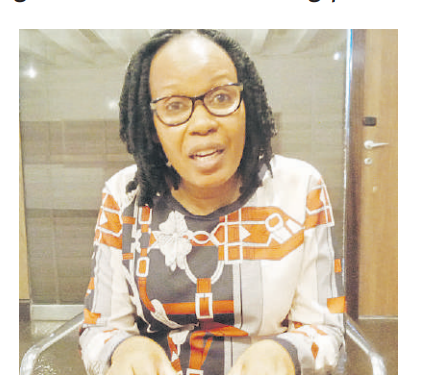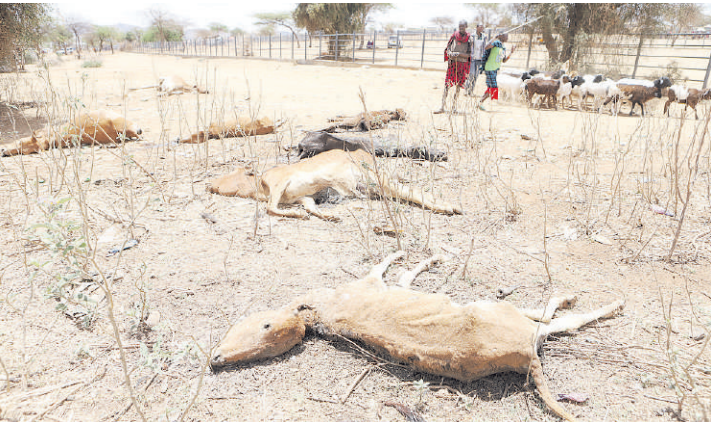

For 15 years, Jessicah Mwanzia has been at the forefront of the fight for fair climate financing for Africa, advocating passionately for a unified voice and faster access to vital funds to combat climate change.
As the climate financing technical lead at the Pan African Climate Justice Alliance, Mwanzia has emerged as a leading voice in a battle often dominated by the world’s largest polluters.
Her advocacy is a fierce push for African nations to claim their rightful share from the global climate financing pot, a challenge that has become increasingly complex and urgent in recent years.
At the 2024 UN Conference of State Parties in Baku, Azerbaijan, her role was pivotal. She helped spearhead key side events, orchestrating a series of conversations aimed at pushing forward the agenda of African climate justice.
“We had over 40 side events, and I was actively involved in leading discussions, working alongside colleagues to draft critical documents, and guiding lobbyists to strengthen our position in the negotiations,” she said in an interview during a media and gender equality forum in Nairobi.
The negotiations at the climate conference are notoriously tough, particularly when it comes to climate financing, an issue rife with complexity and competing interests.
For Mwanzia, this is where the real challenge lies.
A central issue in the negotiations is the access to cash from the Loss and Damage fund, a pool of money intended to help the most vulnerable nations, many of them in Africa, address the impacts of climate change.
However, Mwanzia argues that Africa’s position at these talks is often undermined by lack of cohesion among the continent’s representatives.
“Africa’s position at COP 29 was undermined because there is no unified stance. The few positions we do have are conflicting, which weakens our negotiating power.”
Mwanzia's work is part of the broader mission of her organisation, a consortium of more than 2,000 groups from all 54 African countries, including grassroots, faith-based, and community associations, as well as indigenous communities, farmers, and pastoralist groups.
The alliance’s vision is to advocate for a people-centered, rights-based approach to tackling climate challenges and to ensure that climate action is just, equitable, and locally led.
In Kenya, Mwanzia believes that while the country has progressive climate policies and laws, their implementation at the grassroots level is often hindered by lack of funds.
“Accessing climate finance at the scale and speed needed for both adaptation and mitigation is incredibly difficult,” she said.
“Now, imagine how much harder it is for the poor communities, the ones most affected by harsh weather patterns. The process of accessing climate funds, like those from the Green Climate Fund, is long and complicated. You can't just submit a proposal and expect funding to flow.”
To access global climate financing, countries must go through a lengthy accreditation process that can take years.
And even once they’re accredited, the application process is rigorous, with specific procedures and requirements.
“The reality is, African countries face delays in getting projects approved and accessing funds compared to other regions, like Asia.”
Lack of capacity to access the funds is a major barrier. “There’s a huge capacity gap when it comes to understanding how to tap into climate finance. Even the accredited entities—those tasked with submitting projects—often lack the skills and resources to develop the types of proposals needed by the Green Climate Fund. This results in years of missed opportunities,” she said.
Training local communities on both climate change mitigation and adaptation is key to bridging this gap. But equally important is equipping them with the tools and knowledge to navigate the complex world of climate finance.
“Communities need to understand not only how to respond to climate change but also how to access the financial resources required to implement climate projects,” the activist said.
Despite the challenges, Mwanzia remains hopeful. Her determination to continue advocating for fair financing stems from the belief that Africa deserves an equitable share of global climate funding—not as charity, but as a fundamental right to safeguard the continent’s future.
“We are at a critical moment. The clock is ticking, and we must act now to secure the funding that Africa needs to protect its people, its ecosystems, and its future.”
Her tireless work is a reminder that the fight for climate justice is not just about numbers and negotiations. It’s fundamentally about the lives and livelihoods of millions of people across Africa. And for Jessicah Mwanzia, the fight is personal.





.jpg&w=3840&q=100)





